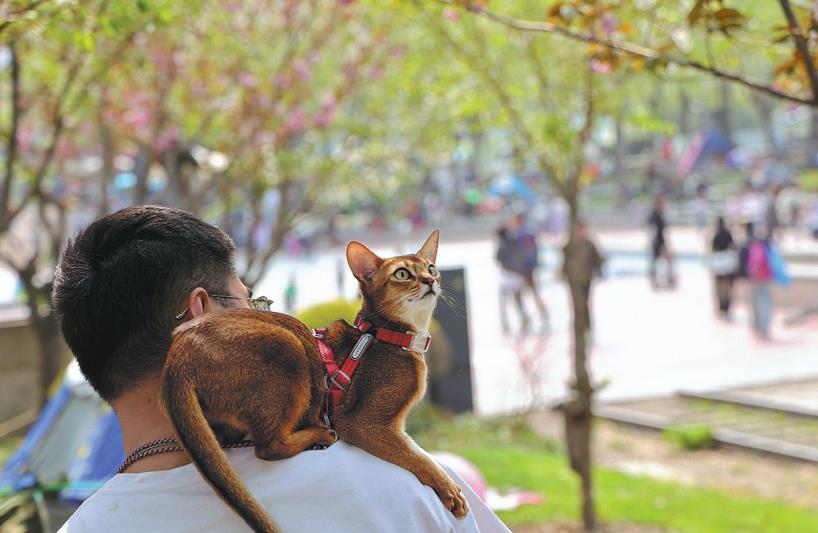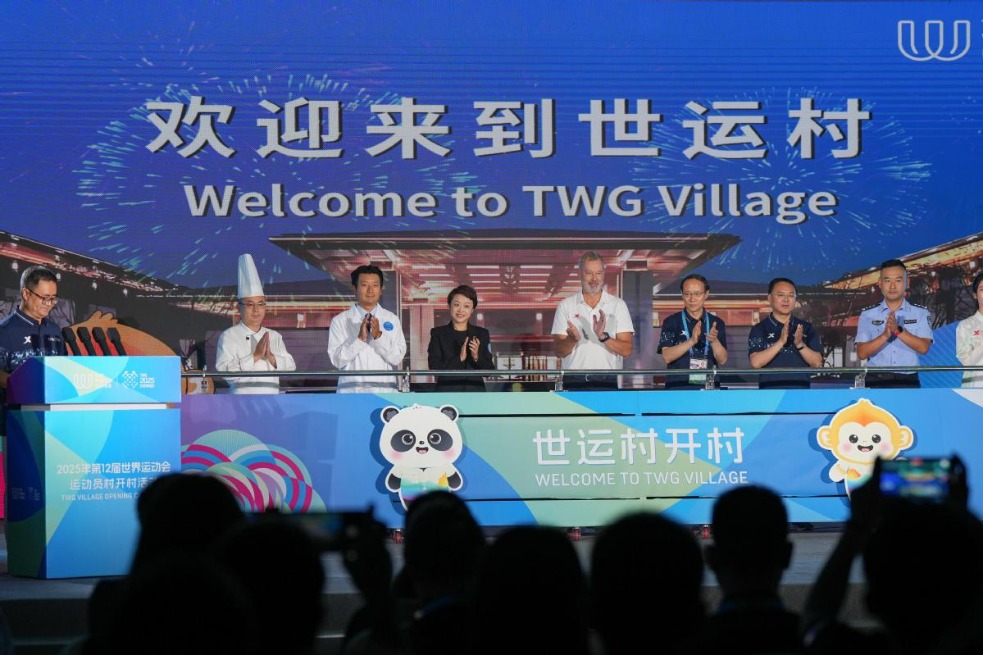Pet market recovery signals economic rebound
Industry expands steadily in 2024 on shifting consumer behavior, an increasingly younger pet-owning demographic


China's pet industry recovered strongly in 2024, with the urban consumption market for pet dogs and cats surpassing 300.2 billion yuan ($41.1 billion), up 7.5 percent year-on-year, according to the 2025 China Pet Industry White Paper recently released by PetData, an industry platform.
The report highlighted the industry's steady expansion, fueled by shifting consumer behavior and an increasingly younger pet-owning demographic.
The pet market recovery signals not only an economic rebound, but also a deeper emotional and financial commitment from pet owners, said the report.
"The growth in the urban pet market underscores a transformative shift in consumer behavior," said Liu Xiaoxia, founder of PetData. "Pet owners are increasingly prioritizing the health and happiness of their animals, which bodes well for the entire industry."
Pet owners are getting younger. One of the most significant changes in 2024 was the shifting demographic of pet owners. Those born in the 1990s still account for the largest share at 41.2 percent, but this figure dropped by 5.4 percentage points from the previous year. Meanwhile, pet owners born in the 2000s surged to 25.6 percent, up by 15.5 percentage points.
"This rise of the post-2000s generation as pet owners is a wake-up call for businesses," Liu said. "They are a generation that demand high-quality products, transparency in sourcing, and a seamless shopping experience. Brands that fail to adapt will find it difficult to remain competitive."
Unlike older consumers, this younger group places greater emphasis on product quality, nutritional value and ingredient traceability. Rather than simply looking for well-known brands, they scrutinize pet food formulations and prioritize value over brand recognition.
"Today's consumers are not just buying pet food — they are investing in their pets' health and well-being," Liu said.
This shift in mindset has led to changes in purchasing behavior. Rather than stockpiling pet food in bulk, 81.4 percent of dog owners and 81.1 percent of cat owners now purchase their pets' main food supply every one to three months, reflecting a preference for fresher, higher-quality options.
Domestic brands
Another clear trend emerging from the report is the increasing popularity of domestic pet brands. In the past, imported brands dominated China's pet market, but this dynamic is changing. Among dog owners, 32.9 percent now exclusively buy Chinese brands, while international brands are losing their appeal. A similar trend is evident among cat owners, with 34.8 percent opting for domestic products.
"Chinese pet food brands have significantly improved their quality and transparency," said Randy Wang, CEO of Pet Fair Beijing International Exhibition Ltd. "Consumers are no longer just chasing after international labels; they want products that cater to their pet's specific needs and offer real nutritional value."
This shift is particularly noticeable in North China, which accounts for about 70 percent of the country's pet food and cat litter production — making it a key hub for domestic pet product manufacturing.
The report also highlighted a divergence in growth between the dog and cat markets. While the total pet population in urban China increased by 2.1 percent year-on-year to 124.11 million in 2024, the cat market saw significantly stronger growth than the dog sector. The number of pet cats rose by 2.5 percent to 71.53 million, while the pet dog population increased by just 1.6 percent to 52.58 million.
This difference is reflected in spending trends as well. The dog owning market reached 155.7 billion yuan, growing at a moderate 4.6 percent, whereas the cat owning market surged by 10.7 percent to 144.5 billion yuan.
Annual spending per pet has also increased. On average, dog owners spent 2,961 yuan per year, up 3 percent from 2023, while cat owners spent 2,020 yuan, marking a 4.9 percent rise. The growing willingness of pet owners to invest in premium products — despite broader economic pressures — suggests that the pet economy remains resilient.
























